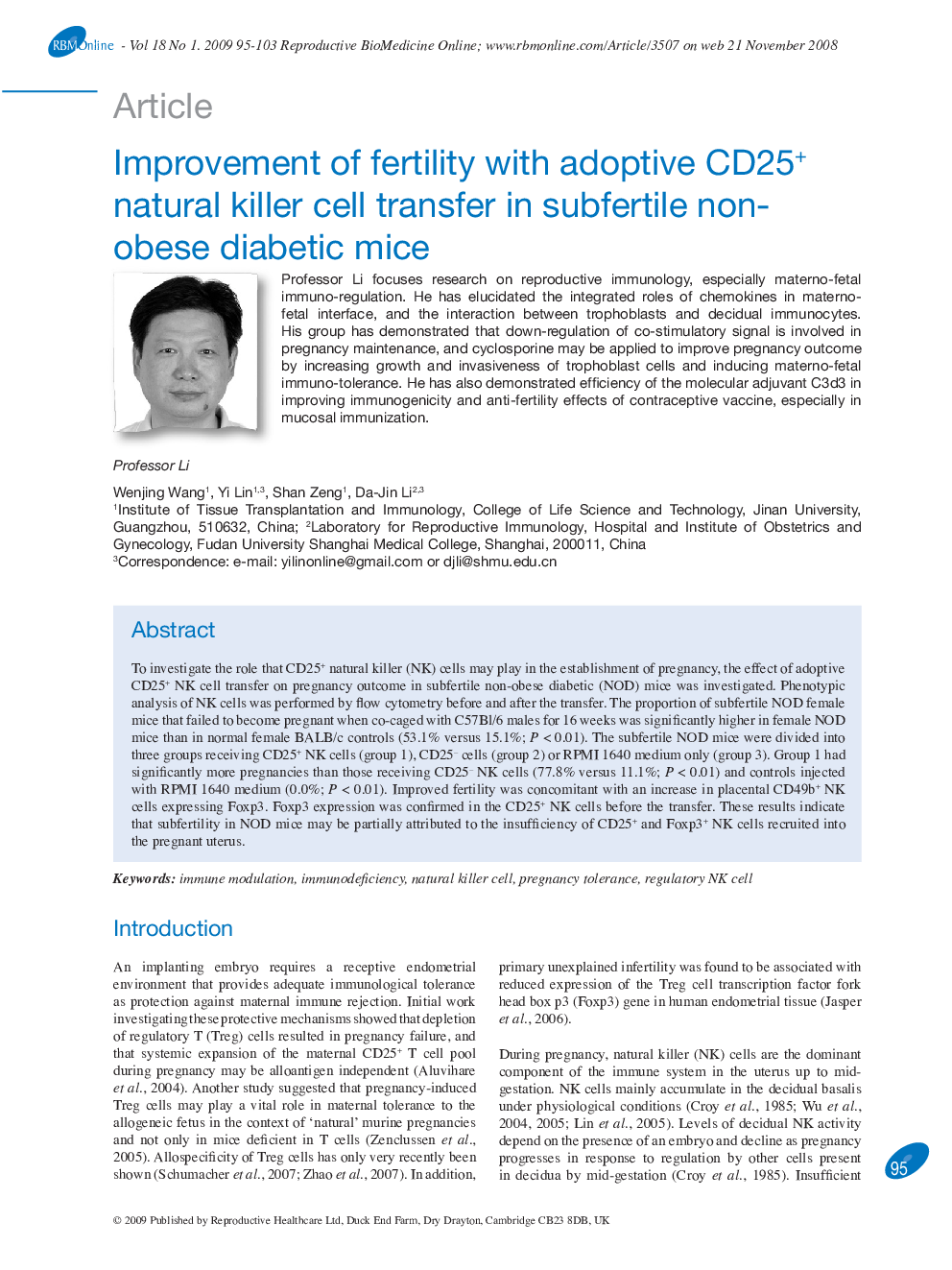| Article ID | Journal | Published Year | Pages | File Type |
|---|---|---|---|---|
| 3972284 | Reproductive BioMedicine Online | 2009 | 9 Pages |
To investigate the role that CD25+ natural killer (NK) cells may play in the establishment of pregnancy, the effect of adoptive CD25+ NK cell transfer on pregnancy outcome in subfertile non-obese diabetic (NOD) mice was investigated. Phenotypic analysis of NK cells was performed by flow cytometry before and after the transfer. The proportion of subfertile NOD female mice that failed to become pregnant when co-caged with C57Bl/6 males for 16 weeks was significantly higher in female NOD mice than in normal female BALB/c controls (53.1% versus 15.1%; P < 0.01). The subfertile NOD mice were divided into three groups receiving CD25+ NK cells (group 1), CD25− cells (group 2) or RPMI 1640 medium only (group 3). Group 1 had significantly more pregnancies than those receiving CD25− NK cells (77.8% versus 11.1%; P < 0.01) and controls injected with RPMI 1640 medium (0.0%; P < 0.01). Improved fertility was concomitant with an increase in placental CD49b+ NK cells expressing Foxp3. Foxp3 expression was confirmed in the CD25+ NK cells before the transfer. These results indicate that subfertility in NOD mice may be partially attributed to the insufficiency of CD25+ and Foxp3+ NK cells recruited into the pregnant uterus.
